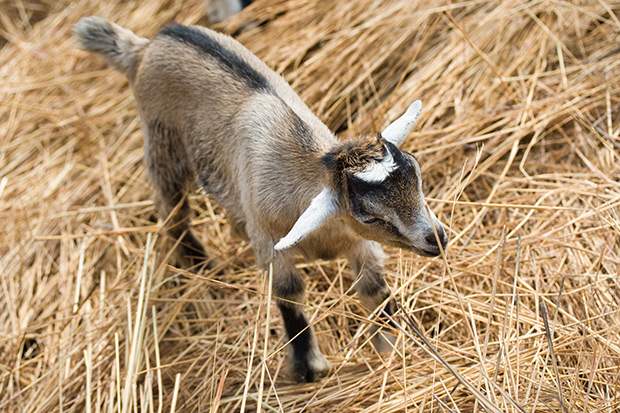Goat in Minnesota tests positive for HPAI
On March 20, the Minnesota Board of Animal Health (MBAH) reported that a juvenile goat on a Minnesota farm tested positive for highly pathogenic avian influenza (HPAI). This marked the first U.S. case of the virus in a domestic ruminant.
Poultry on the Stevens County property, including chickens and ducks, were already quarantined from a previous HPAI detection. Following confirmation of HPAI in the goat kid, the MBAH quarantined all other species on the premises. The board is working with the U.S. Department of Agriculture (USDA) to investigate the transmission of the virus in this case.
“This finding is significant because, while the spring migration is definitely a higher risk transmission period for poultry, it highlights the possibility of the virus infecting other animals on farms with multiple species,” said Dr. Brian Hoefs, Minnesota state veterinarian, in a statement. “Thankfully, research to date has shown mammals appear to be dead-end hosts, which means they’re unlikely to spread HPAI further.”
In early March, the farm owner notified the MBAH of unusual deaths of newly kidded goats on the property where a backyard poultry flock had been depopulated due to HPAI in February. The goats and poultry had access to the same space, including a shared water source.
The USDA’s National Veterinary Services Laboratories (NVSL) later confirmed the H5N1 strain of the HPAI virus, the same strain that has been circulating in wild birds, poultry, and other mammals nationwide for the past two years. HPAI has been detected in every state except Louisiana and Hawaii, according to the USDA Animal and Plant Health Inspection Service (APHIS). Animals with weakened or immature immune systems—like the goat kid in this case—are at higher risk of contracting disease.
The USDA notified the World Organisation for Animal Health (WOAH, founded as the OIE). The report said goats at the farm began to kid only days after the poultry were depopulated. Ten goats died, ranging from 5 to 9 days old. Ultimately, brain and tissue samples from five goat kids were positive for H5N1.
Genomic sequencing showed that the HPAI in samples from the kids and poultry from the farm were highly related.
Samples from the adult goats were negative for HPAI. No additional sick goat kids have been reported since March 11.
Limited experimental data are available on HPAI infection in ruminants, and there are no prior reports of natural HPAI infection in goats. The USDA has tracked more than 200 detections of HPAI in mammals across the country since the start of the 2022 HPAI outbreak.

